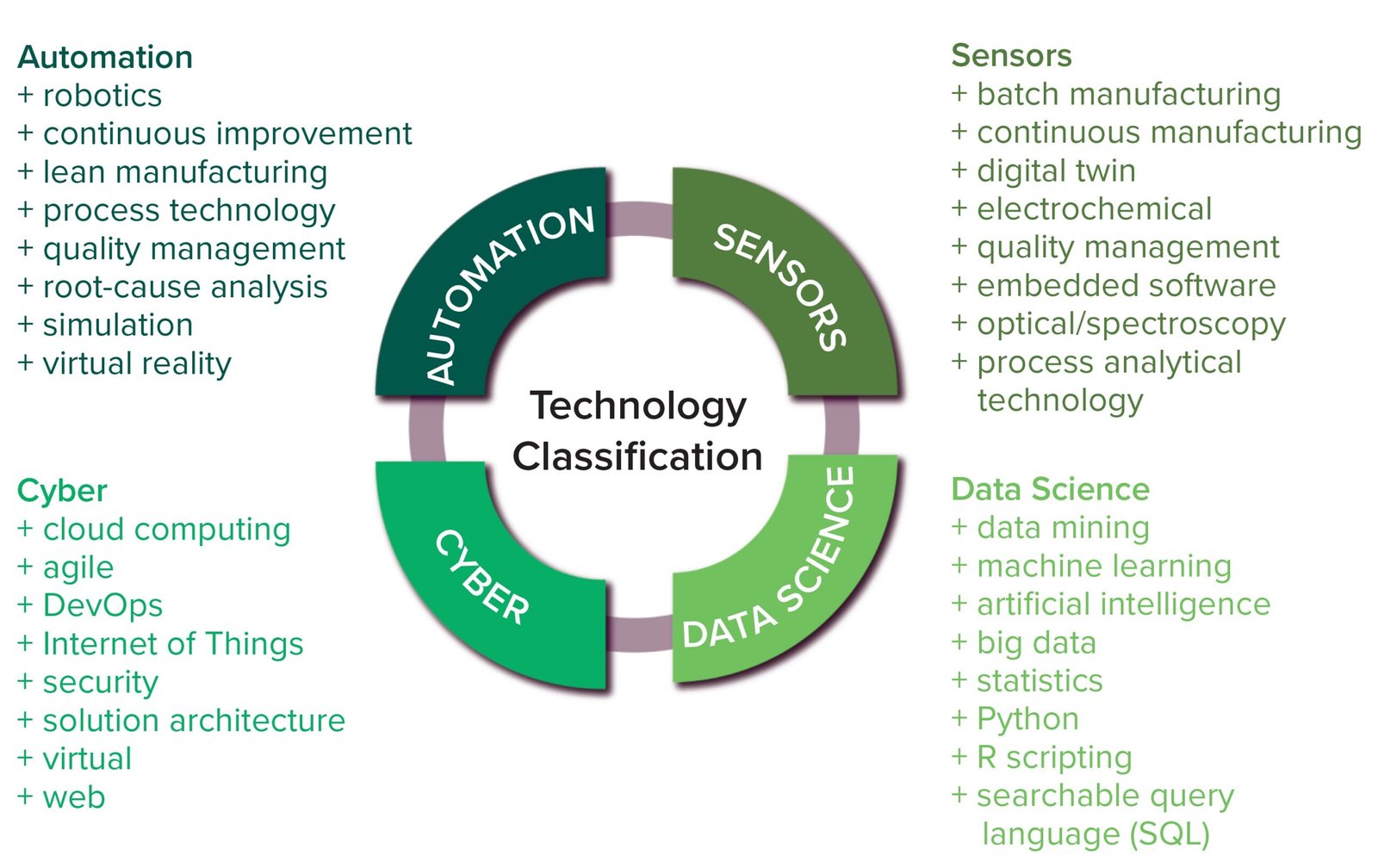Introduction to Biomanufacturing Workforce Trends
Biomanufacturing refers to the production of biological products using living organisms or their derivatives. This sector plays a crucial role in various industries, including pharmaceuticals, agriculture, and environmental management. The global biomanufacturing market has seen significant growth in recent years, driven by advancements in biotechnology, increased demand for biologics, and the rising importance of sustainable practices. As the biomanufacturing industry expands, the need for a highly skilled workforce becomes increasingly critical.
Workforce trends in biomanufacturing encompass various factors that shape employment patterns and skill requirements. One key aspect is the rapid evolution of technology within the sector, which necessitates continuous learning and adaptability from employees. With the increasing integration of automation and artificial intelligence, biomanufacturers are faced with the need for employees who possess not only traditional skills in biology and chemistry but also competencies in data analytics and engineering. This trend indicates a shift towards a more multidisciplinary workforce.
Moreover, regulatory frameworks and compliance measures in biomanufacturing influence workforce developments. As companies strive to meet strict quality and safety standards, personnel must be equipped with a comprehensive understanding of regulatory requirements. This creates demand for ongoing training and education within the field, highlighting the significance of continuous professional development.
Demographic shifts also play a role in shaping the biomanufacturing workforce. As the current workforce ages, there is an urgent need to attract and retain younger talent to ensure the sustainability of the industry. Educational institutions and industry stakeholders are increasingly partnering to create programs that align academic curricula with the skill sets required in biomanufacturing, addressing the growing gap in skilled labor.
Overall, understanding these workforce trends is vital for stakeholders in the biomanufacturing sector to effectively navigate the evolving landscape, ensuring they remain competitive and responsive to market demands.
Key Findings from the Survey
The recent survey conducted on the biomanufacturing workforce yielded crucial insights that shed light on the current state of the industry. One of the most notable findings pertains to workforce demographics, which reveal a diverse range of professionals contributing to biomanufacturing processes. While the majority of respondents were aged between 25 and 45, there is a significant representation of individuals both above and below this age bracket. This demographic spread indicates a promising mix of experience and fresh perspectives that can drive innovation and efficiency in biomanufacturing.
Furthermore, the survey highlighted the prevalent skills and qualifications among professionals in the biomanufacturing sector. A strong emphasis was placed on technical skills, with respondents identifying proficiency in laboratory techniques and regulatory knowledge as critical competencies. Additionally, soft skills such as collaboration, communication, and problem-solving were also recognized as essential. The interplay of these skills underscores the industry’s need for a workforce that is not only technically adept but also capable of effective teamwork and adaptability.
Job satisfaction levels among biomanufacturing professionals emerged as another focal point of the survey. Many respondents expressed a high degree of satisfaction with their current roles, citing factors such as meaningful work, opportunities for advancement, and a supportive workplace culture. However, some challenges were noted, including workload demands and limited resources, which can affect overall job satisfaction. Addressing these concerns may be vital for improving retention rates and fostering a more sustainable workforce.
Key challenges faced by professionals in the biomanufacturing industry were also documented in the findings. Respondents highlighted issues such as rapid technological advancements, regulatory changes, and potential skill gaps as significant hurdles. These insights are critical for future workforce planning, as they suggest an urgent need for targeted training programs and continuous professional development to prepare the workforce for the evolving landscape of biomanufacturing.
Emerging Trends and Challenges in Biomanufacturing Employment
The biomanufacturing sector is witnessing significant changes due to the fast-paced evolution of technology and regulatory frameworks. One of the predominant trends is the rise of automation, which has transformed production processes within the industry. Automation enhances efficiency and reliability, allowing companies to meet increasing market demands. However, this shift presents challenges, particularly concerning workforce displacement and the need for specialized skills to operate new automated systems.
Moreover, the introduction of advanced technologies, such as artificial intelligence and machine learning, is reshaping the landscape of biomanufacturing. These innovations enable companies to streamline operations, improve quality control, and accelerate research and development processes. As a consequence, the workforce is required to adapt to these technological advancements, acquiring new competencies that were previously unneeded. This technological evolution necessitates a focus on continuous education and training for current and emerging professionals in the field.
In parallel to these technological trends, the regulatory environment is also changing, driven by evolving health and safety standards and the need for environmentally sustainable practices. Companies must navigate these regulations carefully, which requires an informed workforce proficient in compliance and quality assurance protocols. The complexity of these regulations adds yet another layer of challenge, as workers must continually update their knowledge to remain compliant with industry standards.
Furthermore, a notable concern in the biomanufacturing workforce is the persistent skills gap. Many professionals currently in the field may lack the technical knowledge required to operate sophisticated equipment or utilize advanced methodologies. Bridging this gap is crucial for ensuring the industry can consistently produce high-quality biopharmaceuticals and meet regulatory expectations. Therefore, investing in ongoing professional development and tailored training programs is essential to equip workers with the knowledge and skills necessary for future success in biomanufacturing.
Future Outlook for the Biomanufacturing Workforce
The biomanufacturing industry is poised for significant transformations in the coming years, propelled by advancements in technology, regulatory shifts, and an escalating demand for biopharmaceutical products. According to survey insights, the workforce in biomanufacturing is expected to experience substantial job growth, with predictions indicating an increase in demand for skilled professionals across various roles. This growth trajectory is not only a reflection of the industry’s expansion but also highlights the need for a robust workforce equipped with both technical and soft skills.
Emerging roles within the biomanufacturing sector are likely to gain prominence as companies adapt to evolving technologies and methodologies. Professions such as data scientists, who can analyze vast amounts of information derived from biomanufacturing processes, and bioinformatics experts, who bridge the gap between biological data and computational analysis, are anticipated to be critical. Moreover, positions focused on sustainability, such as those specializing in green chemistry and waste reduction techniques, will emerge as organizations strive to meet environmental standards while enhancing operational efficiency.
Organizations will need to prioritize talent development to successfully navigate the dynamic landscape of biomanufacturing. Strategic recommendations encompass investing in continuous education and training programs to equip the current workforce with advanced skill sets, fostering partnerships with academic institutions for research and internship opportunities, and embracing diversity and inclusion initiatives to attract a broader talent pool. By nurturing talent and adapting to workforce trends, companies can ensure sustainable growth and innovation within the biomanufacturing domain.
In conclusion, the future of the biomanufacturing workforce hinges on proactive strategies that address the evolving demands and opportunities. By focusing on emerging roles, investing in talent development, and embracing workforce trends, the industry can effectively position itself for sustained success and innovation in the years to come.









